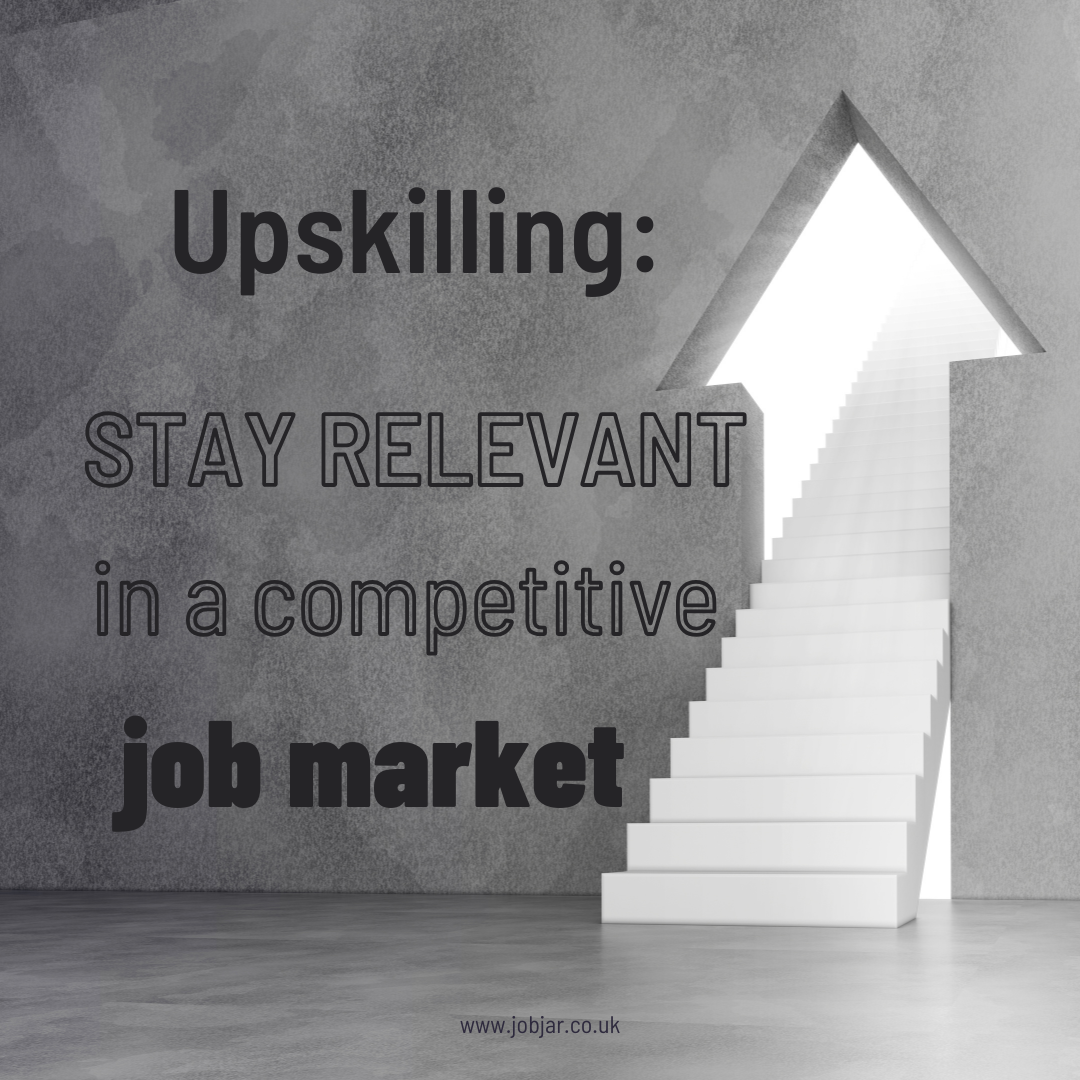Upskilling: The Key to Staying Relevant in a Competitive Job Market
Upskilling is the practice of learning new skills that you can use to enhance your job role. Essentially, taking on new skills that you would not otherwise learn traditionally through working and using these to aid you in your career.
Why it matters
The job market is extremely competitive, employers are receiving countless CVs for a role and scanning them, hoping for something to set a candidate apart from the rest. Most strong candidates for a particular role will have similar qualifications and skills, however upskilling is an opportunity to display that you are a well-rounded candidate who not only meets the job requirements but exceeds them! Even for promotions, if a candidate can display both breadth and depth, it is more likely they will be selected for a promotion from a pool of candidates with similar experience. Finally, there is the self-confidence aspect of upskilling, challenging yourself to learn new skills or even deepen existing skills can help you feel more empowered in your work.
How employers are viewing upskilling
Many employers see learning as continuous, it is becoming more common to be asked regularly in performance reviews what skills you have picked up recently. Many skills become outdated quite quickly, particularly ones that involve the use of technology, therefore employers are constantly looking for their employees to pick up on these advancements. There is also the aspect of costs and efficiency, it is far cheaper and far easier to upskill employees then to hire new staff with the desired skills.
Many companies choose to invest in their employees, offering learning stipends to employees to spend on education, or providing free access to learning platforms. Platforms such as Coursera or LinkedIn learning host a wide range of courses across various industries, covering both technical and soft skills. Additionally, some companies will run internal training courses to ensure that their employees are constantly learning new skills or refining existing ones.
Popular areas to upskill in
While the types of skills that are desirable are constantly changing, there are many that are fairly versatile and therefore will always add value to your CV. If you work in a role that touches on tech — even if it's not your main focus — it can be worthwhile to take a short course in data analysis or Python. Gaining a basic understanding of these areas not only proves useful in many roles but also makes you more attractive to a wide range of employers. Similarly, having a foundational grasp of AI and cybersecurity can give you an edge, as both are becoming increasingly relevant across industries.
In creative fields, some of the most sought-after skills include UX design, digital marketing, and SEO. These skills allow you to design user-friendly experiences, promote brands online, and drive organic traffic — all of which are crucial in today’s digital economy. Whether you're working in content creation, branding, or product development, strengthening these areas can significantly boost your career opportunities.
From a broader business perspective, there are also key skills that are highly valued across most industries. Building strong leadership skills, gaining experience with project management, and learning Agile methods can set you apart in almost any role. These abilities show that you can manage teams, adapt to change, and drive results — qualities that are essential for career growth in today’s fast-paced work environments.
How to Start Your Upskilling Journey
It may be overwhelming to take the first step towards upskilling, but it is easier than it may seem. Begin by checking if your company provides a learning stipend, or gives you access to a learning course, if not there are many platforms with free options for courses such as YouTube or edX.
When choosing between free and paid learning, consider your goals: free courses are excellent for building knowledge, while paid programs often offer certificates that can strengthen your CV.
You might also look into online bootcamps or part-time programs if you want a more structured path, especially in areas like coding, UX design, or digital marketing.
Whichever route you choose, set yourself up for success by creating a learning plan — even committing just one hour a week can make a real difference. Using SMART goals (Specific, Measurable, Achievable, Relevant, Time-bound) will help you stay focused and track your progress as you grow your skills.
Final Takeaway
Upskilling doesn’t have to mean a complete career change — it’s about staying curious, adaptable, and open to growth. Whether you’re adding a new skill to your toolkit, brushing up on the basics, or diving into a completely new area, every step counts. In a competitive job market, showing that you’re proactive about learning can set you apart — and often, it's the smallest shifts that lead to the biggest opportunities. So pick a skill, make a plan, and start learning — your future self (and future employer) will thank you for it.

